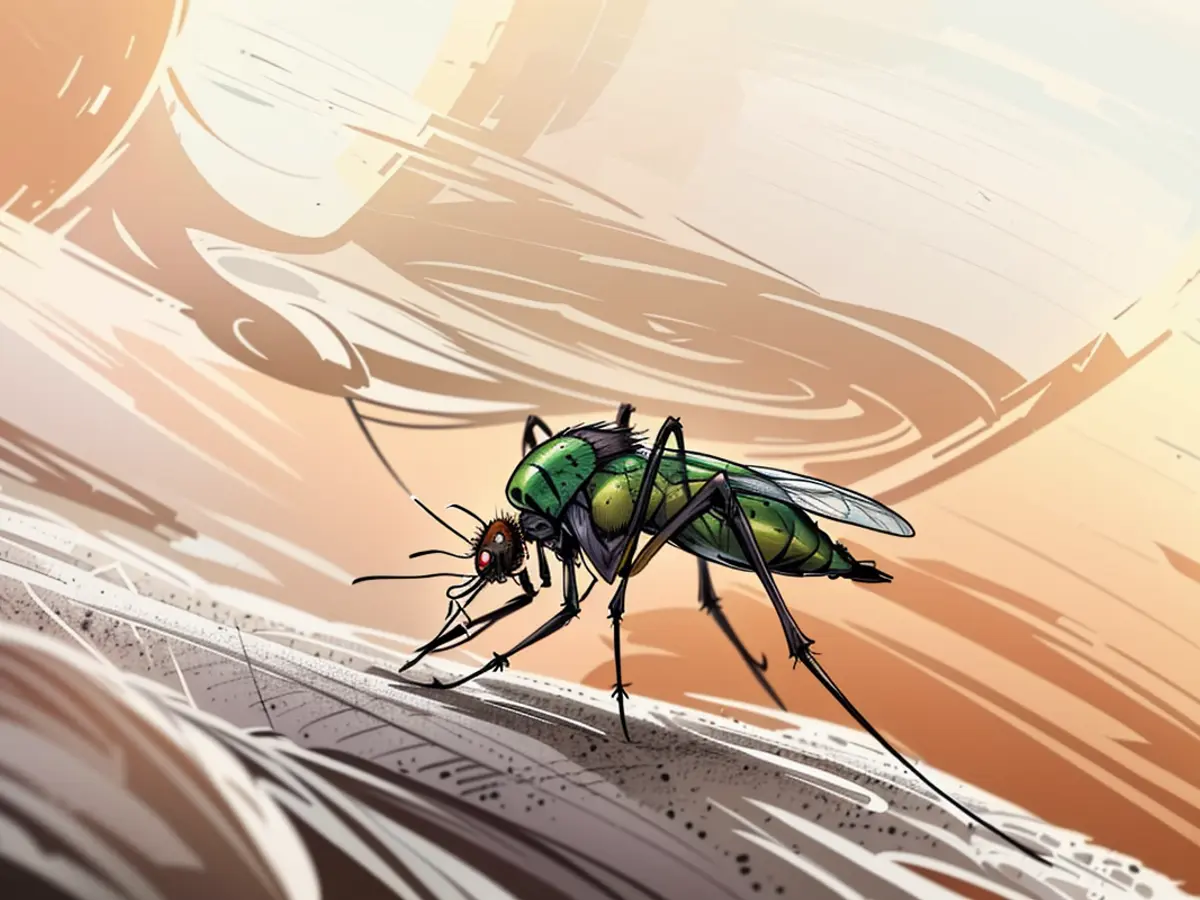Keeping Safe from Tick- and Mosquito-Transmitted Diseases During Summertime
Ticks and mosquitoes have become a frequent cause for concern due to the diseases they can carry, and summer doesn't seem to be an exception. But how can people protect themselves from these bloodsuckers while still enjoying the season? And what are the options for treatment if they succumb?
To answer these questions, I reached out to CNN's wellness expert Dr. Leana Wen. A board-certified emergency physician and clinical associate professor at George Washington University, Dr. Wen has also served as Baltimore's health commissioner.
CNN: Let's start by discussing tick-borne diseases, focusing on Lyme disease. What is it, and why is it something we should watch out for?
Dr.Leana Wen: In the United States, Lyme disease is the most common vector-borne illness and is passed on by ticks. It can make you feel flu-like with symptoms such as muscle aches, fever, and headaches. You may also notice a rash appearing along with joint pain. However, some untreated patients may experience long-term symptoms that can be severe and debilitating - nerve pain, facial paralysis, or abnormal heart function.
CNN: Does peak season for Lyme disease also peak during the summer?
Wen: We're currently in peak season. In regions like the eastern United States, where Lyme disease is prevalent, blacklegged ticks carrying the disease bite people from spring to fall, according to the Centers for Disease Control and Prevention. Lyme diagnoses were reported to peak just before the Fourth of July last year.
CNN: Has the occurrence of Lyme disease been on the rise recently?
Wen: Yes. There has been a significant increase in Lyme diagnoses, almost doubling from 2004 to 2018. Additionally, it's becoming more widespread, something the CDC refers to as an increase in geographic prevalence. The reasons for this are not fully understood, but climate change is thought to be a contributing factor.
CNN: What measures can people take to lower the likelihood of getting bitten by a tick?
Wen: The best strategy is prevention. Wear long-sleeved shirts and pants if hiking in areas known to host ticks. Use DEET-based insect repellents. And after any outdoor activity, take the time to check your body and that of your children and pets for any ticks. In case you do discover one, remove it, store it for identification if possible, and contact your primary care provider. If the tick was still on you when you discovered it, immediate antibiotic therapy might prevent Lyme disease. If you develop any symptoms, don't hesitate to seek testing. Antibiotic treatment can help hold back major complications.
CNN: What about mosquitoes? What diseases can they transmit?
Wen: Several diseases can be transmitted by mosquitoes, including West Nile virus, dengue, and malaria.
West Nile virus is the leading source of mosquito-borne illness in the continental United States. Most people infected with the virus don't exhibit symptoms, but around 1 in 150 may experience a severe illness that can be fatal. In 2023, 47 states reported West Nile cases with a total of 2,406 instances in the US.
Dengue is a virus spread by mosquitoes. While it's a global concern, mosquitoes that transmit dengue can also be found in certain parts of the US. Outbreaks have taken place occasionally, but there have also been reports of local transmissions in Florida, Texas, Arizona, and California.
Finally, though overall less common in the United States, malaria is another disease carried by mosquitoes. If left untreated, symptoms can worsen to kidney failure, seizures, coma, or even death. Despite being uncommon in most parts of the US, local transmission has been known to occur. In 2023, cases were reported in Florida, Texas, and Maryland.
CNN: If traveling to areas known for mosquito-borne illnesses, what are the recommended steps?
Wen: Prior to traveling, consult the CDC's comprehensive guide tailored to each destination. Make an appointment with your primary care physician or a travel medical clinic. Depending on your destination, activities, and medical history, additional vaccinations or preventative medications might be recommended.
For example, for areas with a risk of yellow fever, the yellow fever vaccine is necessary. If you're going where malaria is common, antimalarial drugs may be prescribed.
CNN: What tactics can we all use to minimize the risk of mosquito bites?
Wen: There are two essential actions to follow. The first is reducing the number of bites you get. You can achieve this by covering as much skin as possible when outdoors. Permethrin-treated clothing provides an extra layer of protection. Further, destroy breeding sites like standing water around your house.
The second action is protecting yourself from mosquito bites while being outdoors. Wear protective clothing, opt for socks and long pants if possible. Use a DEET-based repellent. Apply repellents containing picaridin or IR3535 as alternatives. Ensure windows and doors in your home are secured.
Insect repellent is another effective method you can utilize. Ensure you use EPA-registered repellents, as they include active ingredients like DEET and are safe even for kids and pregnant women.
Another crucial step is managing your surrounding environment. To minimize the number of mosquitoes near you, especially during peak season in summer and early fall, make use of window and door screens. Furthermore, search for potential sources of standing water in your yard as they serve as mosquito breeding grounds. Be on the lookout for objects around your house that could collect water, such as buckets, trash cans, tires, and toys, and remember to empty and clean them out at least once a week.

Read also:
To further prioritize wellness and protect against mosquito-transmitted diseases, Dr. Wen suggests employing mosquito nets in homes, especially during peak season in summer and early fall. Additionally, utilizing mosquito coils and candles containing natural repellents can provide an extra layer of protection while indoors.








